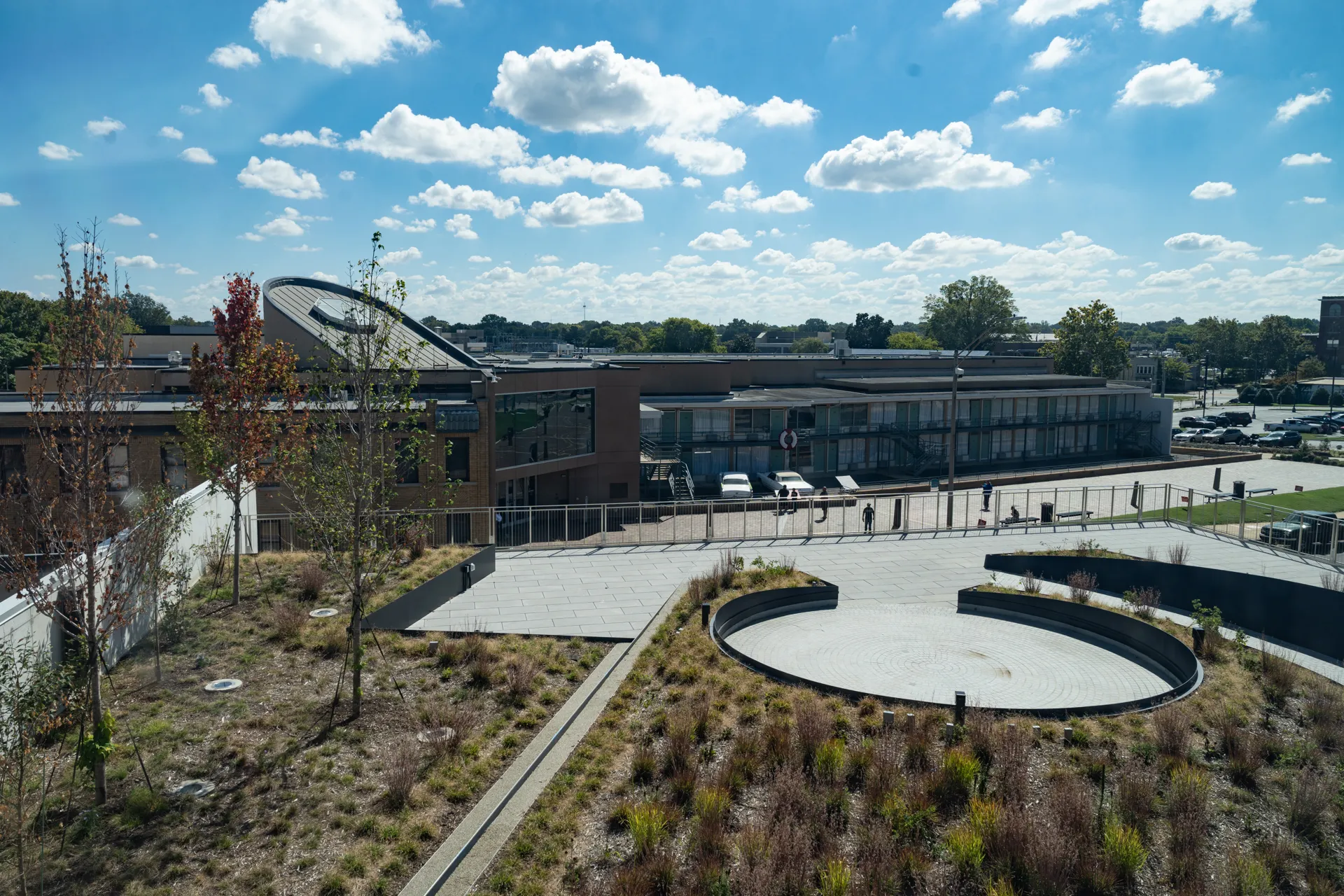National Civil Rights Museum Op-Ed
Dr. Russ Wigginton, President
There’s a quiet power in standing in a place where history happened. And in Memphis, there are few spaces more sacred than the ground outside the National Civil Rights Museum. For decades, visitors have stood outside the Lorraine Motel, eyes fixed on the balcony where Dr. Martin Luther King Jr. last stood. But what if that moment—of pause, of reverence, of reckoning—could become a longer conversation? What if that space could expand into something more living, more communal, more purposeful?
That’s what BlueCross Healthy Place at Founders Park now offers. 
With the support of the BlueCross BlueShield of Tennessee Foundation, the National Civil Rights Museum has opened a new public green space called the BlueCross Healthy Place at Founders Park. Located just steps from Room 306, the park bridges South Main Street and Mulberry Street with open air, reflection gardens, and the newly unveiled Legacy Terrace—a contemplative perch overlooking both history and the present.
Among its most striking features is the Legacy Terrace—an elevated space that overlooks Mulberry Street and offers an unobstructed view of the Lorraine Motel balcony where Dr. King was struck down. This reflective perch is lined with a timeline installation that guides visitors through the final hours of April 4, 1968, and today’s space for gathering that followed, offering a solemn, reverent invitation to engage deeply with the history that took place on this very ground.
But this isn’t just another urban greenspace. It is a civic classroom, a cultural stage, and a call to action.
Founders Park will also serve as a joyful community hub—hosting concerts, spoken-word events, health and wellness festivals, and creative arts programming that reflects the power of expression within the Civil Rights Movement. Public performances will highlight the role of music, art, and culture in advancing justice. Outdoor shaded areas will give teachers and students space to discuss history where it happened.
At Founders Park, you’ll find families reading engraved quotes from Dr. King, elders recalling the marches of 1968 while their grandchildren run through grass once walked by leaders of the Poor People’s Campaign and nonviolent direct action. School groups can sit in the outdoor for storytelling sessions and history-in-place tours. QR-coded signs connect visitors to stories, archival footage, and opportunities to get involved in modern movements for equity and wellness.
For Memphians, this isn’t just an amenity. It’s an inheritance—and a gift forward. A healing space in a city still wrestling with its past. A gathering ground for neighbors and newcomers alike. A reflection of what’s possible when remembrance meets renewal.
Founders Park does what museums alone cannot: it brings the mission outdoors and to life. Free and open to all, it’s a sanctuary where history breathes and hope grows. While Memphians will find a renewed sense of place and belonging here, so will the hundreds of thousands of visitors who make the pilgrimage each year to stand in witness at the Lorraine Motel. It expands the story, allowing every guest a chance to engage, to reflect, and to carry the legacy forward in a space designed for movement and meaning.
Whether you’re there to learn, to grieve, to rest, or to recommit, Founders Park stands ready to receive and revive you.
This is not only a park on the right side of history. It is now central to the path forward.
